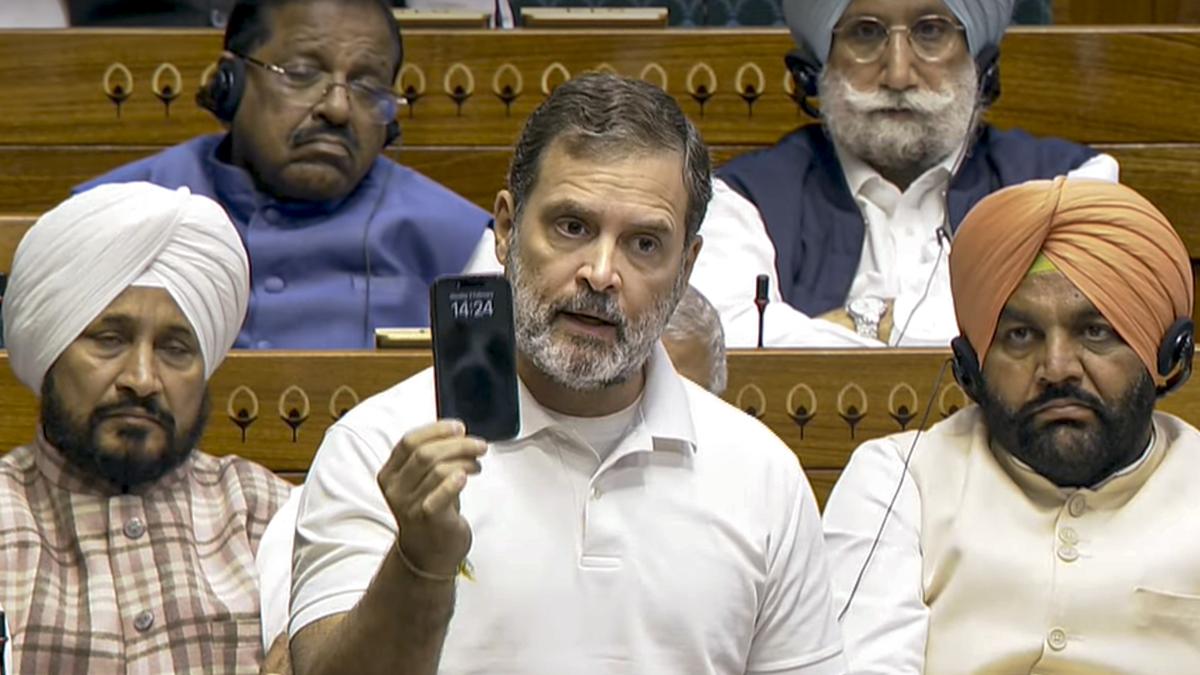 |
|
Rahul Gandhi's speech in the Lok Sabha during the Motion of Thanks on the President's address on February 3, 2025, served as a platform for a scathing critique of the current government's economic policies, particularly the 'Make in India' initiative. He argued that the initiative, while conceptually sound, has demonstrably failed to achieve its intended goals, resulting in a significant decline in India's manufacturing sector's contribution to the GDP. Gandhi presented statistics showing a drop from 15.3% in 2014 to 12.6% in 2025, highlighting this as the lowest share of manufacturing in India's history. He carefully refrained from directly blaming the Prime Minister for this failure, acknowledging the effort made but emphasizing the undeniable outcome. This strategic approach allowed him to criticize the policy's effectiveness without resorting to personal attacks, maintaining a respectful yet firm stance during his parliamentary address.
A central theme of Gandhi's speech was the urgent need to address the issue of youth unemployment in India. He pointed out that neither the previous UPA government nor the current NDA government has provided a satisfactory solution to this persistent problem. This critique transcends partisan politics, acknowledging a shared failure across different administrations. He argued that this failure stems from a fundamental flaw in India's economic strategy: a disproportionate focus on consumption over production. Gandhi contends that while successive governments have managed consumption relatively well, India has consistently lagged in organizing and boosting its own production capabilities. This, he argued, has led to a situation where India is heavily reliant on foreign manufacturing, particularly from China, resulting in a significant outflow of capital and a loss of potential economic growth and employment opportunities.
Gandhi's proposed alternative vision for India's economic future rests on a fundamental shift towards prioritizing production. He illustrated this point using the example of a mobile phone, highlighting that even though many are assembled in India, the components are primarily sourced from China. The use of this everyday object effectively highlighted the dependence on foreign manufacturing and its economic implications. This reliance, he argued, results in a net transfer of wealth to other nations. His suggested solution is a complete overhaul of the economic strategy, shifting focus to domestic production and technological advancements. He used the analogy of a 'revolution' occurring in the manufacturing sector—the transition from internal combustion engines to electric motors, and from fossil fuels to renewable energy sources. Drawing a parallel to the successful navigation of the computer revolution by the previous Congress government, Gandhi expressed confidence in India's capacity to capitalize on this technological shift, creating new industries and employment opportunities.
Gandhi further emphasized the strategic significance of this shift, drawing attention to the ongoing Russia-Ukraine war. He pointed out the critical role of electric motors in modern warfare, specifically in the widespread use of drones. He highlighted the contrast between the effectiveness of these smaller, technologically advanced weapons and the relative vulnerability of traditional tanks, showcasing the importance of technological innovation and domestic production in the global landscape. This provided a context for his argument, showing that the proposed shift in economic focus is not merely an economic strategy but a crucial element of national security and global competitiveness. The overall tone of his speech was one of constructive criticism, offering an alternative economic vision centered on production, technological innovation, and youth employment. He presented a coherent, well-reasoned argument, using data and real-world examples to support his claims, effectively engaging with the complexities of India's economic challenges and offering a roadmap for a potential solution.
